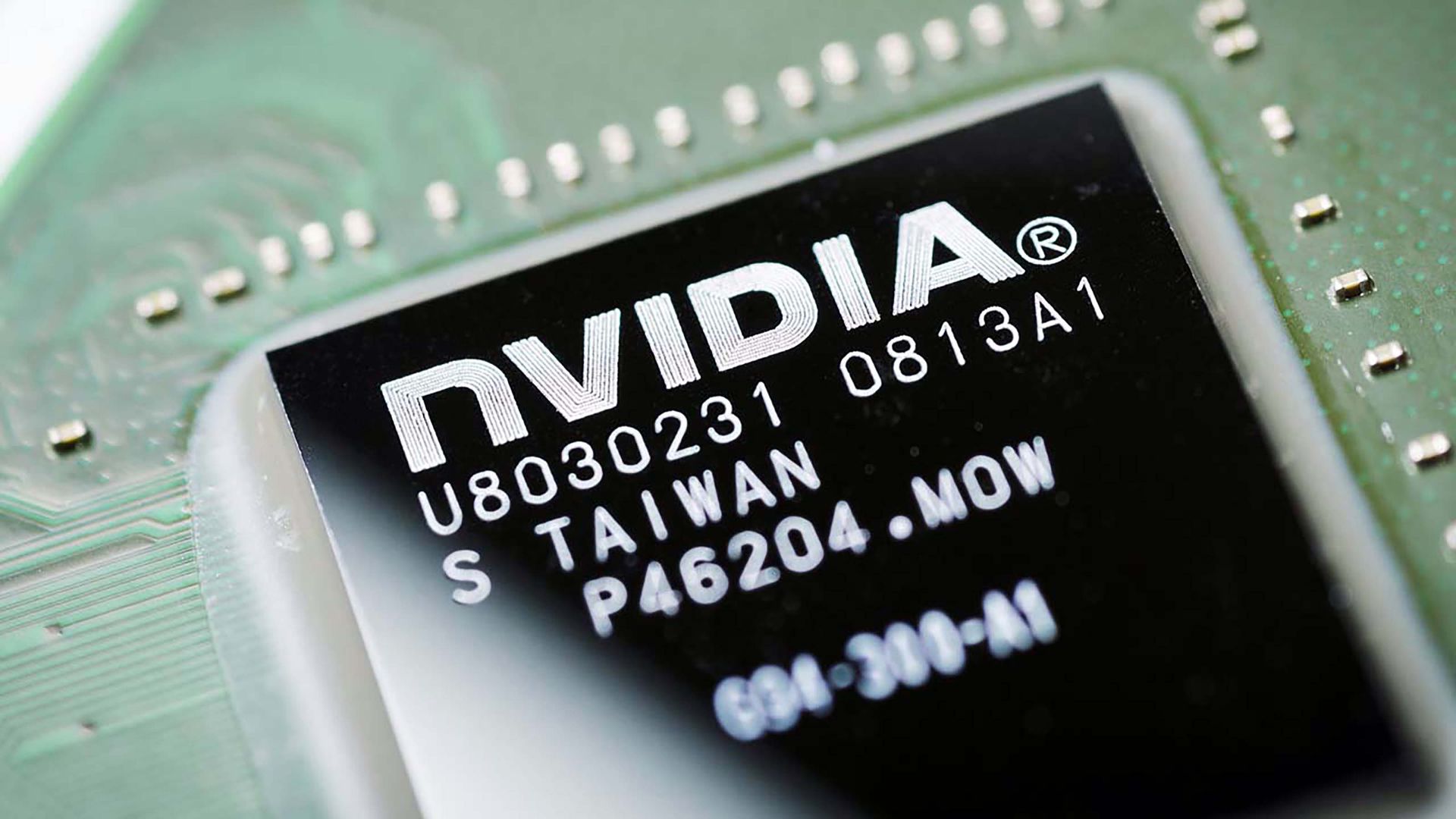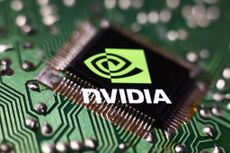Best AI Stocks to Buy: Smart Artificial Intelligence Investments
AI stocks have been red-hot in recent months and the technology's relentlessly growing importance should keep the sun shining on them.


The roots of artificial intelligence (AI) technology go all the way back to the late 1950s, when computers started to become much more powerful. But the proliferation of AI stocks hasn't come until much more recently, as artificial intelligence became commercially viable over the past decade or so. That's due to a variety of factors such as the evolution of cloud computing, the use of sophisticated graphics processing units (GPUs), growth in open-source software, and the explosion of data.
The launch of ChatGPT in late November 2022 was certainly a watershed event in AI. It could be on par with other moments like the Netscape IPO or Apple's (AAPL) release of the iPhone.
ChatGPT has allowed millions of people to get first-hand experience with the benefits of AI. It's also a lot of fun, if not somewhat scary. ChatGPT really does seem human-like.
At the core of this platform is generative AI. This is different from traditional models, which mostly find patterns in data. Rather, generative AI creates data, such as text, images and video. This technology is based on several breakthroughs during the past few years, such as transformer and diffusion models.
"AI has always had massive utility for businesses," said Steve Phillips, CEO and cofounder of Zappi. "But with the growing popularity of generative AI, like ChatGPT, consumers are realizing its utility in augmenting day-to-day activities. With AI in the mainstream, we can expect a sizable boost in business adoption to follow suit. More operators will look for creative ways to leverage the technology and build more efficient processes, without expanding budgets."
Even without factoring in the impact of ChatGPT and generative AI, the category was still poised for strong growth. According to International Data Corporation (IDC), the AI market is expected to go from $118 billion in 2022 to $300 billion by 2026.
That growth should mean great things for Wall Street's best AI stocks. Let's look at nine of the best stocks to buy to gain exposure to artificial intelligence..
Disclaimer
Data is as of November 17. Dividend yields are calculated by annualizing the most recent payout and dividing by the share price.

Nvidia
- Market value: $1.21 trillion
- Dividend yield: 0.03%
Nvidia (NVDA, $492.98) is the pioneer in GPUs, which provide for immersive graphics. But the technology has also proven effective for advanced AI models. A big reason is that GPUs can process a huge amount of data in parallel.
As for Nvidia, the company was smart to invest heavily in the AI market. The result is that its GPUs are the standard, such as with offerings like A100s and H100s.
But the success for one of Wall Street's best AI stocks is more than sophisticated chips. NVDA has the Cuda software development system and various AI libraries. Because of this, the company has a global ecosystem of AI researchers and developers. According to one study, Nvidia GPUs are cited 90 times more than rival chipmakers in academic papers.
"Nvidia is still primarily a chip company in terms of current revenues," said Zeno Mercer, a research analyst at ROBO Global. "But its efforts across various AI disciplines could organically grow into a large percentage of revenue and also symbiotically boost demand for their chips."
This demand is certainly seen in Nvidia's top line. In its second-quarter earnings report, the company said revenue doubled year-over-year, and was up 88% from the previous quarter. And its data center revenue jumped 171% year-over-year thanks to AI.
For investors looking at a long-term play on AI, NVDA looks like a winner among semiconductor stocks.

Microsoft
- Market value: $2.75 trillion
- Dividend yield: 0.8%
In Microsoft's (MSFT, $369.85) fiscal third-quarter earnings report, CEO Satya Nadella said, "The next major wave of computing is being born, as the Microsoft Cloud turns the world's most advanced AI models into a new computing platform."
A big boost has definitely come from OpenAI. Back in 2019, Microsoft invested $1 billion in the startup and then followed this up with $2 billion more during the next few years.
But the mega round came this year. Microsoft agreed to invest up to $10 billion at a $29 billion valuation, according to The New York Times.
And in late November, Microsoft announced it has hired OpenAI co-founders Sam Altman and Greg Brockman to head a new advanced AI research team following the unexpected ousting of Altman as CEO of OpenAI.
"We remain committed to our partnership with OpenAI and have confidence in our product roadmap, our ability to continue to innovate," Nadella said in a statement. The executive added that Microsoft looks forward "to moving quickly to provide" Altman and fellow OpenAI co-founder Greg Brockman "with the resources needed for their success."
Oppenheimer analyst Timothy Horan calls this a "win-win" for Microsoft, "as it still has full access to the best large language models (LLMs) and now the team to possibly make the next great LLM and the best AI minds in the world to help implement AI." Horan has an Outperform (Buy) rating on one of Wall Street's top AI stocks.

Alteryx
- Market value: $2.8 billion
- Dividend yield: N/A
Large data sets are messy. There are gaps, missing items, outliers and bias. This is why there needs to be wrangling of the data for AI models. But the process can be time-consuming and expensive.
To deal with this, there are automation tools to help out. And one of the best AI stocks in the category is Alteryx (AYX, $38.61). The company has built a comprehensive platform that is based on years of research and development, as well as smart acquisitions.
It works with any data source, whether enterprise applications, warehouses, robotic process automation or file/doc systems. As for the functions, they include data preparation, blending and enrichment. Then there are sophisticated systems for analytics and AI.
But you do not have to be a data scientist to benefit from Alteryx. It has low-code/no-code code that allows non-technical people to use it.
AYX is also one of the best growth stocks around. In the third quarter, the company posted a 21% year-over-year spike in annual recurring revenue to $914 million, and the dollar-based net expansion rate was 119%. Additionally, the number of customers with annual recurring revenue of $250,000 or greater was up 20.5% year-over-year.

SentinelOne
- Market value: $5.1 billion
- Dividend yield: N/A
A recent Gartner survey of chief information officers shows that cybersecurity is the top priority for companies. About 80% of the respondents indicated that they planned to increase spending on this technology in 2024.
This really should be no surprise. The cyber-threat environment is getting more dangerous and brazen.
But AI can help out. In real-time, it can detect harmful intrusions and remediate them.
One of the best AI stocks for cybersecurity is SentinelOne (S, $17.18). Founded in 2013, the company has built the Singularity XDR Platform. Think of it as an autonomous security system. It monitors endpoints, cloud workloads, IoT (Internet-of-Things) and cloud containers for potential threats. The system will then quickly fix the problems.
And the growth for the cybersecurity stock has been strong. For the latest quarter, the company reported a 46% year-over-year jump in revenue to $149.4 million and the customer count rose by 30% to more than 11,000.

Palantir Technologies
- Market value: $44.6 billion
- Dividend yield: N/A
In the early days of PayPal (PYPL), the company almost failed because of the rampant fraud on the platform. But cofounder and CEO Peter Thiel implemented sophisticated analytics and AI to mitigate the problems. These systems worked extremely well and PayPal would eventually sell to eBay (EBAY) for $1.5 billion in 2002.
Thiel realized there were other applications for the AI technology, such as for systems to detect terrorism or threats on the battlefield. He took part of fortune from the PayPal windfall and created Palantir Technologies (PLTR, $20.49).
While the government would remain important for Palantir – especially with the wars in Afghanistan and Iraq – the company has since diversified into commercial markets. They span industries like healthcare, energy and manufacturing.
At the heart of this is the Foundry system. Palantir considers it an operating system for an organization's data. The system also helps to create, deploy and manage AI models. For example, Tyson Foods (TSN) has realized $200 million in annualized savings over a 24-month period.
In the fiscal fourth quarter, Palantir reported a 17% increase in revenue to $558 million and the customer count grew by 34%. The adjusted free cash flow (AFCF) was $141 million, marking the ninth straight quarter that AFCF was positive.

PROS Holdings
- Market value: $1.7 billion
- Dividend yield: N/A
The origins of PROS Holdings (PRO, $36.75) go all the way back to 1985. The founders were a married couple, Mariette and Ron Woestemeyer. They saw an opportunity to leverage data science to optimize pricing.
PROS first focused on the airline industry, but this would be just the start. The company would go onto many other categories, including automotive, industrial, food and consumables, and healthcare.
Over the years, PROS has used cutting-edge technologies to improve on its platform. These include systems like neural networks, deep learning and reinforcement learning. The company has over 20 in-house patents and patents pending for its innovations.
Scale is a big advantage for PROS. The platform processes over 2 trillion transactions per year, which is 12 times the number for Visa (V).
Another benefit of PROS is that it helps to lift revenue for customers. According to a survey, the average increase in revenue was about 8%.
For the third quarter, PROS subscription revenues increased by 16% to $51.8 million. Some of the new customers included SKS Airway and JetSMART.

Duolingo
- Market value: $8.9 billion
- Dividend yield: N/A
Back in 2009, a Carnegie Mellon University professor, Luis von Ahn, as well as one of his students, Severin Hacker, came up with the idea for Duolingo (DUOL, $211.65). They wanted a much more affordable way for people to learn languages. This was something that von Ahn experienced while growing up in Guatemala.
The timing was fortuitous because of the emergence of mobile platforms from Apple and Alphabet (GOOGL). The founders also were prescient in leveraging AI models.
The company has used this technology for all the key parts of the Duolingo system. These include curriculum design, raw content creation, exercise creation and lesson personalization.
However, this is not to imply that everything is automated. Duolingo blends human expertise with its AI platform. This is especially the case with curriculum design, which must abide by high-levels of educational standards.
A key competitive advantage is Duolingo's enormous data set. This is the benefit of having 83 million MAUs (monthly active users) and 24 million daily active users (DAUs).
To generate revenue, the company relies on a freemium model. The core app is free and there are paid options for additional features. In the most recent quarter, the company announced a 43% year-over-year increase in revenue to $137.6 million and 60% growth in paid subscribers to 5.8 million.
And considering there are more than 1.8 billion language learners across the globe, there's certainly lots of room for more growth for one of Wall Street's best AI stocks.

Snowflake
- Market value: $53.4 billion
- Dividend yield: N/A
Traditional databases were not built for the complex requirements for AI. So yes, there have emerged next-generation solutions.
A standout is Snowflake (SNOW, $161.85). The founders of the company were veterans from companies like Oracle (ORCL). In other words, they understood the limitations of legacy database technology. With Snowflake, the approach was to start from scratch.
This meant creating a database in the cloud, which would allow for easily scaling the workloads. The founders also made sure that it was easy for users to get started. Spinning up a database took only a few minutes. Then there was strong governance and security infrastructure.
Snowflake has certainly become an effective tool for AI projects. The technology has also been a source of strong growth. In the latest quarter, Snowflake posted a 37% year-over-year increase in revenue to $640.2 million and the net revenue retention rate was 142%. There are 8,537 customers and 402 had 12-month trailing revenues of over $1 million.
The market opportunity for Snowflake, a member of the Berkshire Hathaway equity portfolio, is enormous, estimated to be about $248 billion. This is great news for investors seeking out the best AI stocks to buy now.

iRhythm Technologies
- Market value: $2.5 billion
- Dividend yield: N/A
In the U.S., about 11 million people suffer from cardiac arrhythmia. The disease results in 130,000 deaths per year and 750,000 hospitalizations.
But there are innovative wearable devices that can help. A leader in this category is iRhythm Technologies (IRTC, $81.46). The company is the developer of the Zio monitor, a small and comfortable device that detects and diagnoses irregular heart rhythms.
An essential part of this is a powerful AI system that is based on a sophisticated deep neural network with 34 layers. It has been trained on over 5 million patient records and more than 1 billion hours of curated heart-beat data. "Zio by iRhythm has the only FDA-cleared deep learned algorithm that detects 13 types of arrhythmia classes in this space that has been included as part of the CPT code validation process," the company explains.
"Zio by iRhythm utilizes AI for classifying and characterizing diverse heart rhythms, including atrial fibrillation or AFib," said Evangelos Hytopoulos, the senior director of data science at iRhythm Technologies. "iRhythm's deep learned algorithm has been clinically proven to be as accurate as expert cardiologists."
While IRTC has had operational issues that have hampered growth, it appears to be turning a quarter. In the latest quarter, the company posted a 20% year-over-year increase in revenue to $124.6 million. It also raised its full-year revenue forecast. Investors would be wise to keep IRTC on their list of the best AI stocks.
Related content

Tom Taulli has been developing software since the 1980s when he was in high school. He sold his applications to a variety of publications. In college, he started his first company, which focused on the development of e-learning systems. He would go on to create other companies as well, including Hypermart.net that was sold to InfoSpace in 1996. Along the way, Tom has written columns for online publications such as Bloomberg, Forbes, Barron's and Kiplinger. He has also written a variety of books, including Artificial Intelligence Basics: A Non-Technical Introduction. He can be reached on Twitter at @ttaulli.
-
 The Clock Is Ticking on Tax Cuts: Act Now to Avoid Missing Out
The Clock Is Ticking on Tax Cuts: Act Now to Avoid Missing OutEstate and gift tax exemptions are at an all-time high until the end of 2025. That may seem like a long way off, but setting things up could take longer than expected.
By Christopher F. Tate, J.D. Published
-
 Ready for a Career Checkup? Five Steps to Plan What’s Next
Ready for a Career Checkup? Five Steps to Plan What’s NextAsking yourself some pointed questions to figure out what you want and what you’re good at can bring more purpose and fulfillment to your professional life.
By Anne deBruin Sample, CEO Published
-
 Stock Market Today: S&P 500, Nasdaq Finish the Week at New Highs
Stock Market Today: S&P 500, Nasdaq Finish the Week at New HighsDell was one of the best-performing stocks Friday after the PC maker hiked its dividend by 20%.
By Karee Venema Published
-
 Stock Market Today: Nasdaq Nabs First Record Close Since 2021
Stock Market Today: Nasdaq Nabs First Record Close Since 2021While the main indexes were choppy Thursday, tech stocks Snowflake and Okta made major moves.
By Karee Venema Published
-
 Should You Use a 25x4 Portfolio Allocation?
Should You Use a 25x4 Portfolio Allocation?The 25x4 portfolio is supposed to be the new 60/40. Should you bite?
By Nellie S. Huang Published
-
 Kiplinger's Mutual Fund Guide For 2024
Kiplinger's Mutual Fund Guide For 2024Giant U.S. tech stocks dominate many of the top-performing names in Kiplinger's mutual fund guide, but small and foreign companies are well represented too.
By Nellie S. Huang Published
-
 Stock Market Today: Nvidia Tops $2 Trillion in Market Cap
Stock Market Today: Nvidia Tops $2 Trillion in Market CapStocks ran out of steam Friday following a strong week on Wall Street.
By Karee Venema Published
-
 Stock Market Today: Nasdaq Nears New High After Nvidia Earnings
Stock Market Today: Nasdaq Nears New High After Nvidia EarningsGlobal stock markets rallied after the chipmaker's impressive financial results and guidance.
By Karee Venema Published
-
 Stock Market Today: Stocks End Mixed After Fed Minutes
Stock Market Today: Stocks End Mixed After Fed MinutesAnother down day for Nvidia dragged on the Nasdaq.
By Karee Venema Published
-
 Stock Market Today: Stocks Retreat Ahead of Nvidia Earnings
Stock Market Today: Stocks Retreat Ahead of Nvidia EarningsStocks fell to start the holiday-shortened week as Nvidia sold off ahead of earnings.
By Karee Venema Published










